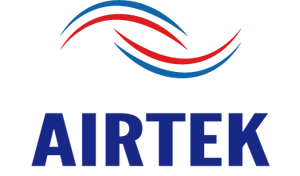The Future of HVAC: Innovation, Efficiency, and Opportunity
As climate change, energy costs, and indoor air quality concerns take center stage, the HVAC industry is undergoing a powerful transformation. What was once seen as a behind-the-scenes utility is now a critical player in the future of sustainable, smart, and healthy buildings.
Whether you're a contractor, property manager, or developer, understanding where HVAC is heading can help you stay ahead of the curve and tap into new opportunities for growth and efficiency.
1. Electrification & Heat Pumps Are Leading the Way
The transition away from fossil fuels is reshaping heating and cooling systems. Heat pumps, once limited to mild climates, are now more advanced and capable of efficiently managing both heating and cooling in even the coldest regions.
Governments across North America are offering significant rebates and incentives for heat pump installations, making them the centerpiece of the HVAC decarbonization movement.
Key Trend: Expect heat pumps to dominate both residential and light commercial HVAC retrofits over the next decade.
2. Smart HVAC Is the New Standard
The rise of IoT (Internet of Things) has reached HVAC. Smart thermostats were just the beginning; today, entire HVAC systems are connected, self-monitoring, and even AI-assisted.
From occupancy sensors to predictive maintenance and energy usage analytics, smart HVAC helps building owners and homeowners save money, reduce emissions, and prevent breakdowns before they happen.
Did you know? Buildings with integrated HVAC automation can reduce energy consumption by up to 30%.
3. Indoor Air Quality (IAQ) Is a Priority, Not a Perk
COVID-19 turned indoor air quality into a mainstream concern. Today, ventilation, filtration, and air purification are permanent considerations in system design, especially in schools, offices, and healthcare settings.
Expect to see increased integration of air purification technologies like UV-C lighting, HEPA filters, and bi-polar ionization across all HVAC systems.
4. Decentralized & Modular Systems Are on the Rise
As urban density grows and commercial spaces become more flexible, traditional centralized systems are being replaced by modular, scalable HVAC units. Ductless systems, VRF/VRV technology, and packaged rooftop units allow for greater zoning, energy efficiency, and ease of maintenance.
These systems are also easier to install and maintain, ideal for retrofits and buildings with space constraints.
5. Sustainability & ESG Goals Are Shaping HVAC Choices
Sustainability isn’t a buzzword anymore; it’s a business requirement. From developers to corporations, Environmental, Social, and Governance (ESG) goals are influencing equipment choices, refrigerant standards (e.g., low-GWP alternatives), and long-term HVAC strategies.
Manufacturers and contractors are now expected to provide documentation on carbon savings, lifecycle costs, and efficiency certifications.
Why More HVAC Pros Choose Airtek
If you're serious about succeeding in the next era of HVAC, there's one name that should be at the top of your list: Airtek.
Here’s why professionals across Canada trust Airtek as their go-to B2B HVAC supplier:
-
Exclusive Partner of Gree Electric: One of the world's top HVAC manufacturers, offering smart, energy-efficient systems for every type of project
-
Bulk Supply & Inventory Solutions: Never miss a deadline with reliable stock availability and B2B-friendly logistics
-
Hands-On, Expert Support: Our trained specialists are here to help match the right system to your client’s exact needs
-
Rebate-Ready Equipment & Guidance: We’ll even help you (or your client) claim available rebates to save more
-
Mission-Driven Service: We're committed to sustainability, performance, and building long-term relationships with every professional we serve
Looking to build smarter, scale faster, and serve your customers better?
Airtek is the B2B supplier built for the future of HVAC.
Call us today at 1-866-969-1931
Email us at info@airtekshop.com
Explore more at airtekshop.com
Let’s build greener, smarter HVAC systems together.



